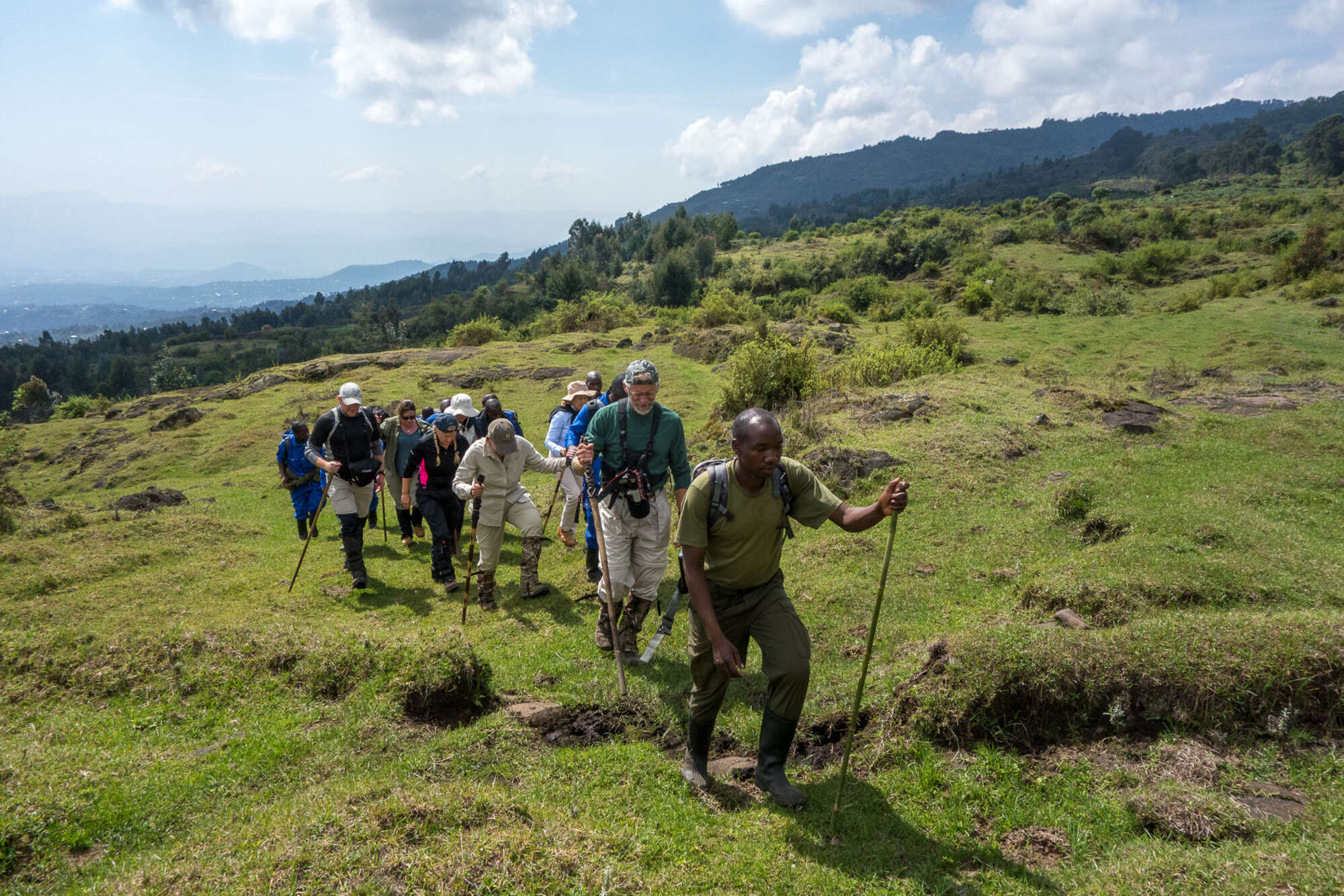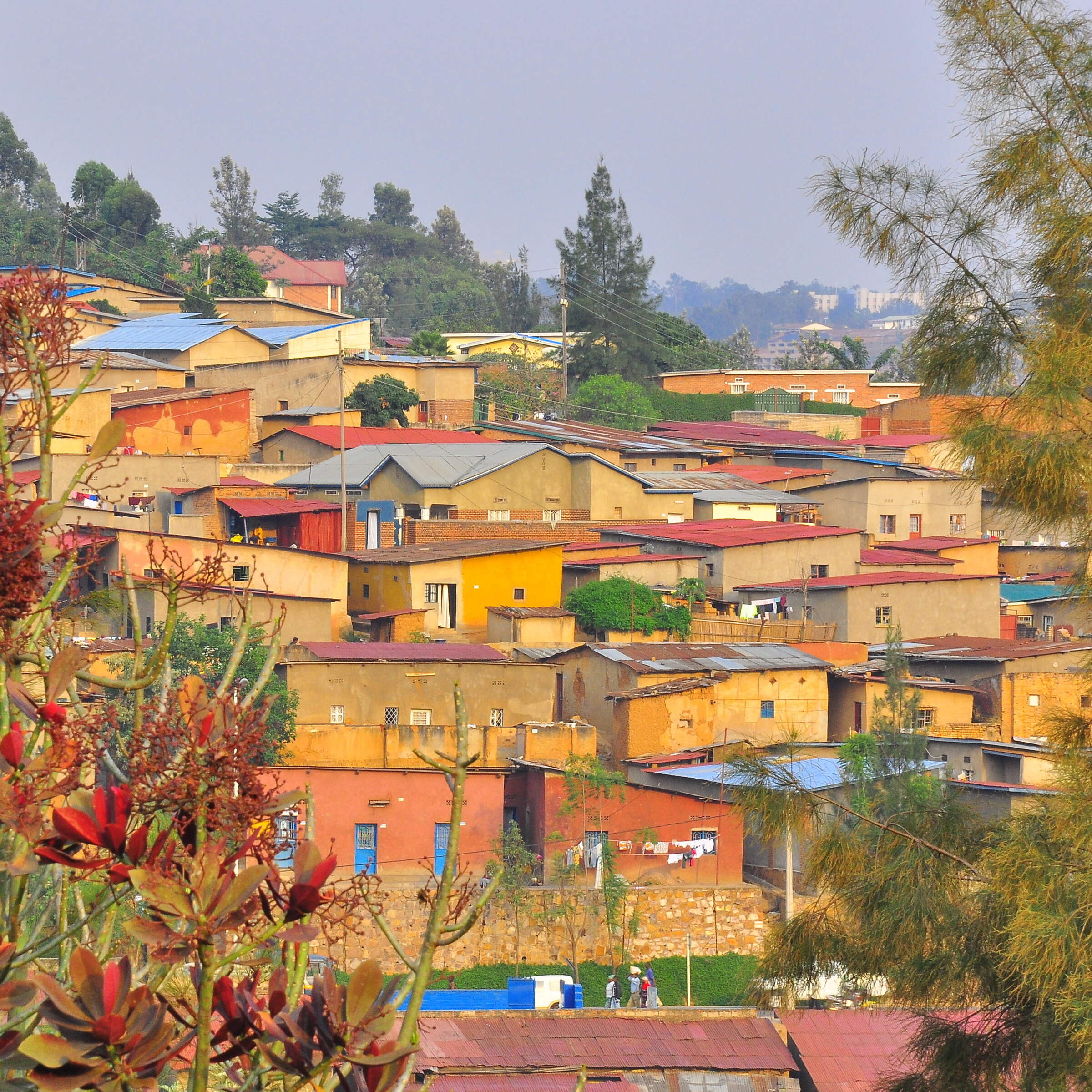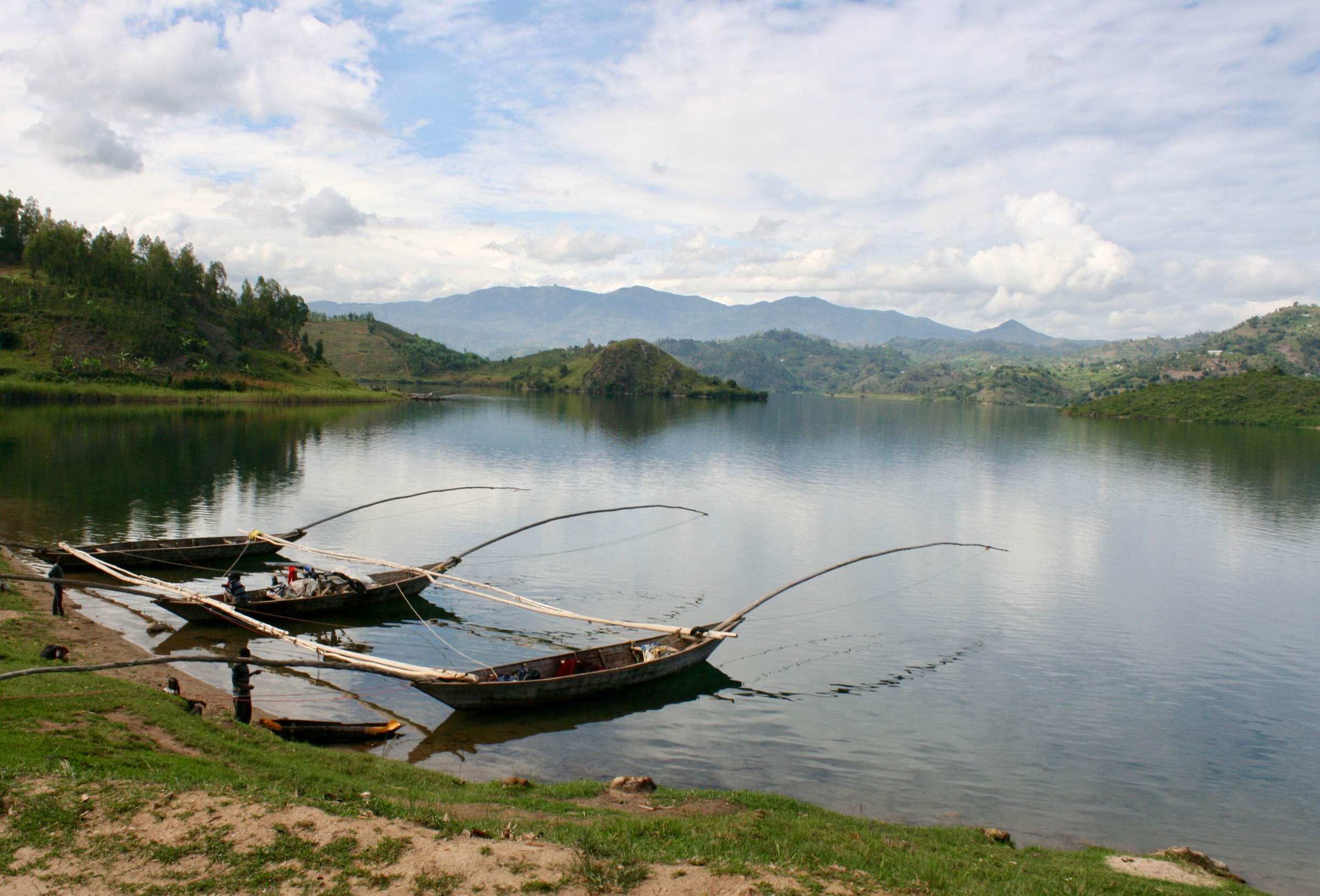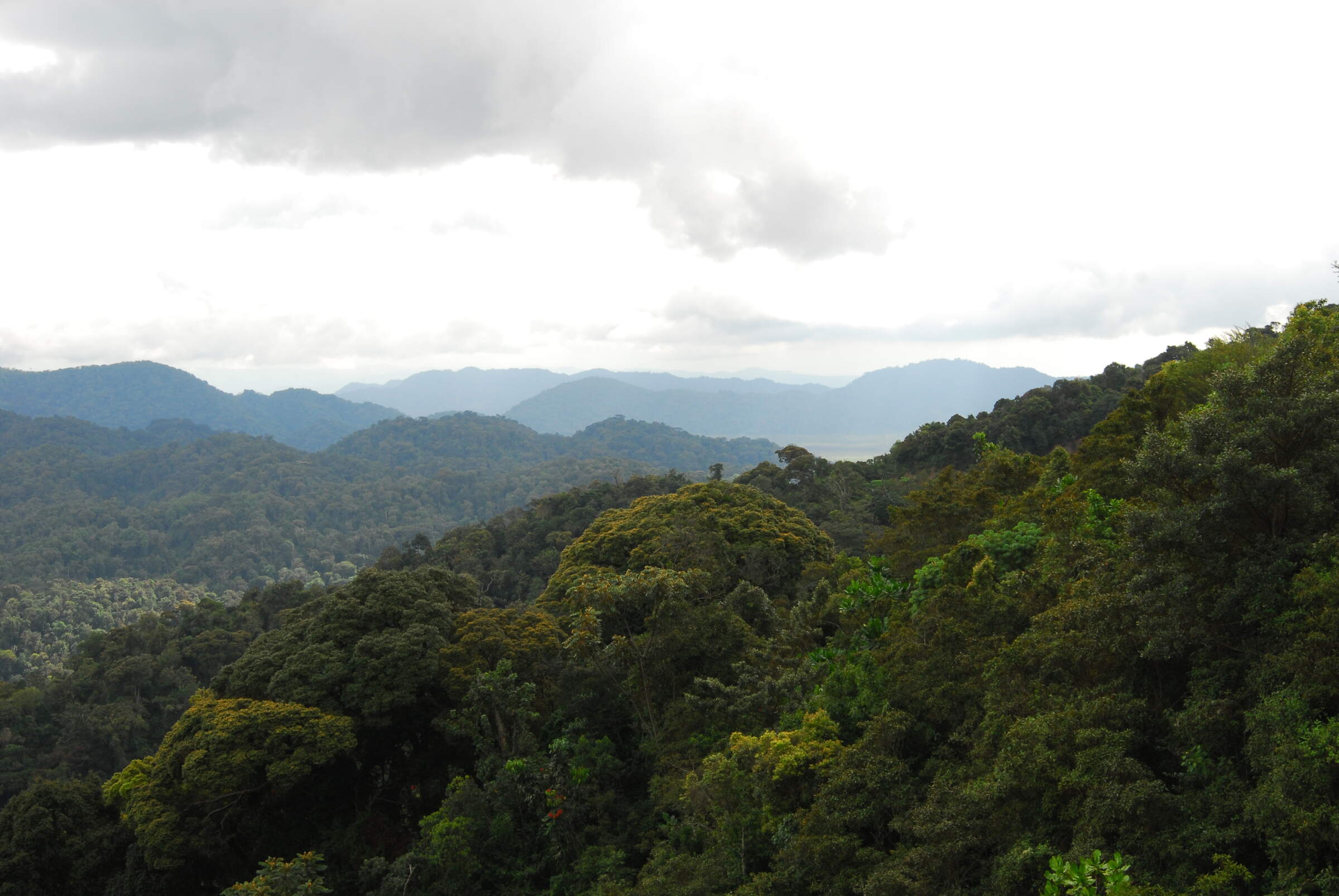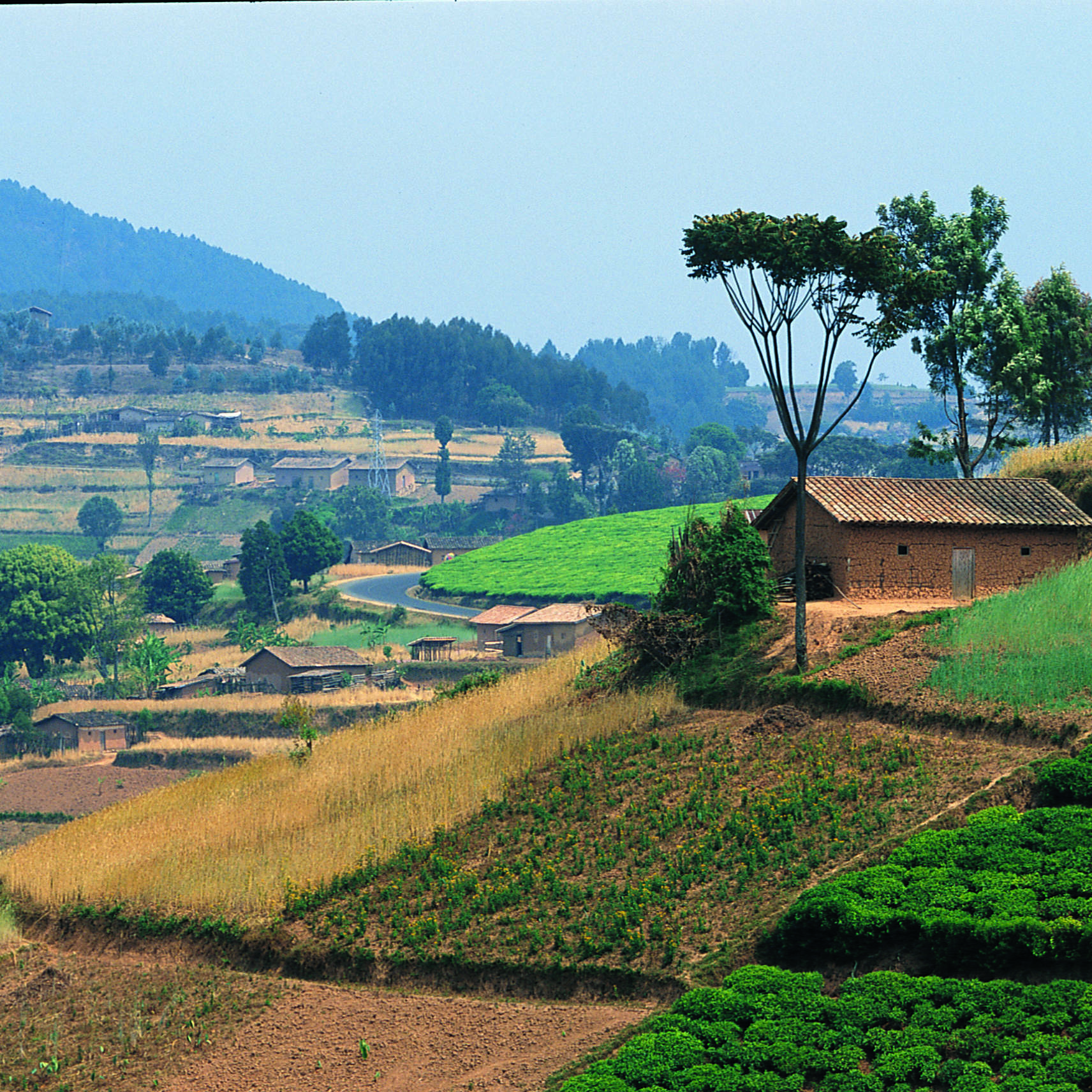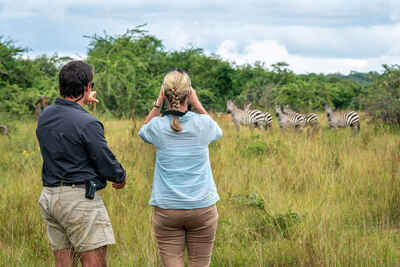
Watch out for hippos in one of Africa’s oldest national park.
Akagera National Park
Akagera National Park
Akagera's swathe of classic East African savannah and lakes is home to all the 'Big Five' and many other species.
The north of Akagera is mostly fairly low-lying grasslands and savannah plains, similar in feel to the 'traditional' safari areas of East Africa. To the west are rolling hills and valleys more typical of Rwandan countryside while to the east, the Akagera River feeds into a series of lakes, marshes and papyrus swamps that constitute central and eastern Africa’s largest protected wetlands. So, for a fairly small National Park, an Akagera safari can be extremely diverse with a variety of habitats, wildlife and birds, and some lovely scenery.
Akagera National Park has had a troubled past, with refugees from Rwanda’s civil wars returning to live in the area in the late 1990s, harming the environment through cattle-grazing and poaching. Consequently, the government reduced Akagera by half, allowing the new residents to stay in one part and protecting the rest.
Today, Akagera National Park is managed in conjunction with the conservation organisation African Parks, which is bringing it back to life. New perimeter fences and anti-poaching measures have made a huge difference to its animal populations and the national park is now well on the way to being restored. While its wildlife isn’t quite on the same scale as better-known East African parks, there is still plenty to see on an Akagera safari in some very beautiful scenery.
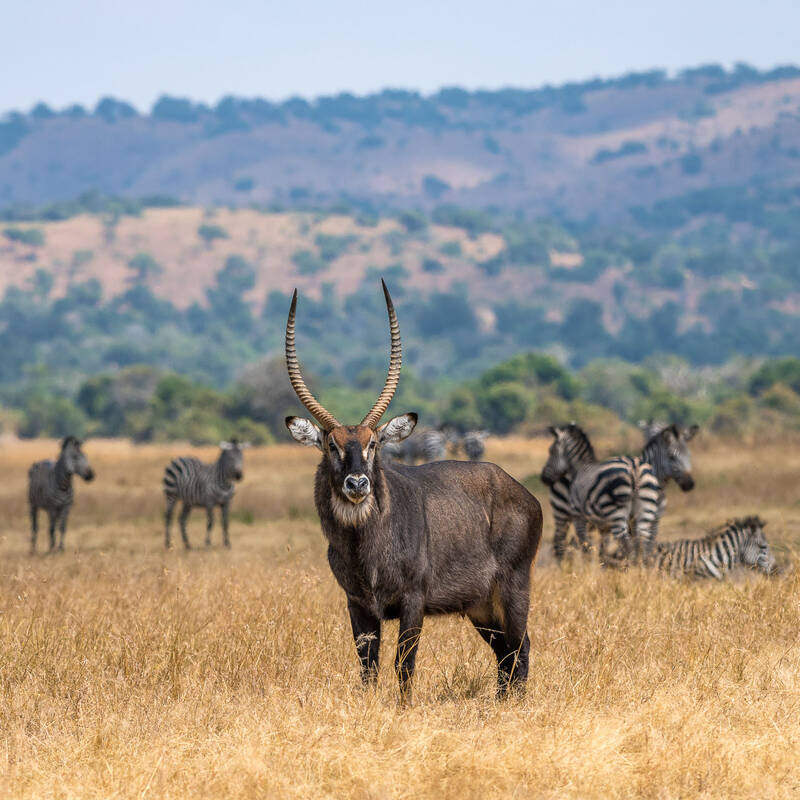
Safaris visiting Akagera
Just ideas, we'll always tailor-make a trip for you
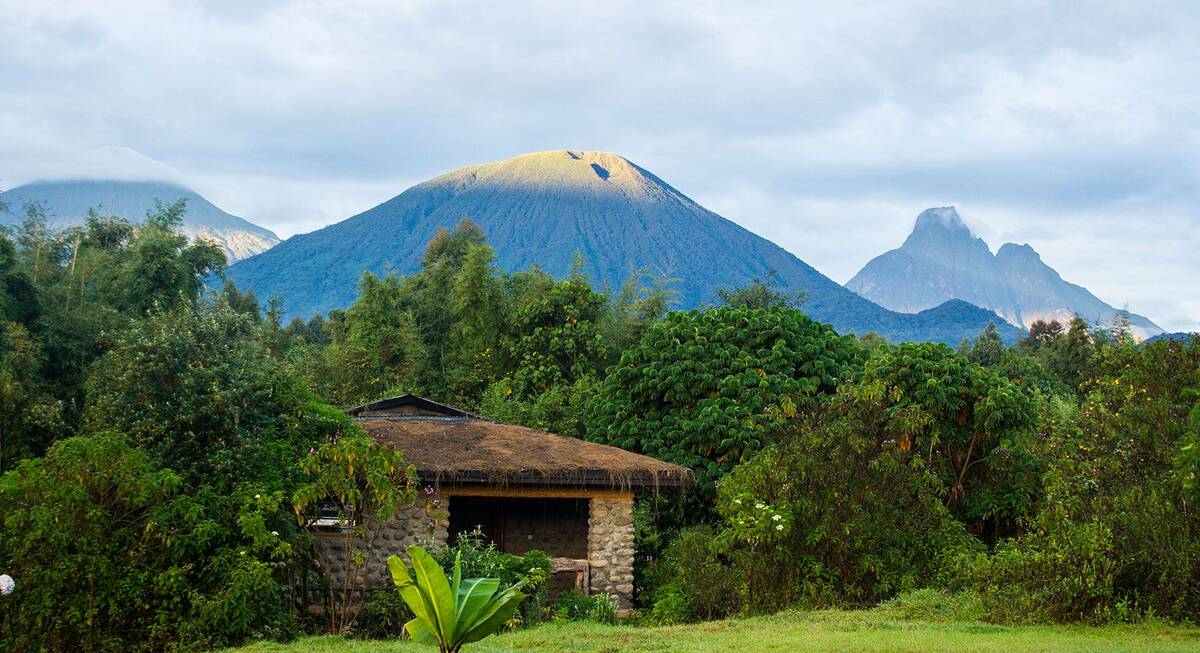
Golden Monkey Safari
12 days • 5 locations
KIGALI AIRPORT TO KIGALI AIRPORT
Combine four key areas of Rwanda on this excellent-value trip, for a true wildlife and cultural experience. The perfect itinerary for those who want to see all the highlights of Rwanda.
US$11,010 - US$12,170 per person
Most recent reviews of our safaris to Akagera
Click below to browse all 14 reviews from Akagera National Park. All from our travellers; all are in full & unedited.
Arrived 7 Dec 2024, 9 nights
"My Dec 2024 trip"
Overall rating: Excellent
Arrived 30 Jun 2024, 19 nights
"Extraordinary trip…..perfect in every way"
Overall rating: Excellent
Arrived 26 Jun 2024, 10 nights
"My Jun 2024 trip"
Overall rating: Excellent
Arrived 17 Sep 2022, 12 nights
"My Sep 2022 trip"
Overall rating: Excellent
Arrived 2 Sep 2022, 17 nights
"Rwanda Trip September 2022"
Overall rating: Excellent
Arrived 17 Jul 2022, 14 nights
"My Jul 2022 trip"
Overall rating: Good
Arrived 24 Jan 2022, 36 nights
"Our Jan/Feb 2022 trip"
Overall rating: Excellent
Arrived 6 Aug 2018, 12 nights
"August 2018 All of Rwanda"
Overall rating: Excellent
Arrived 8 Oct 2016, 20 nights
"Another Great Adventure through Expert Africa"
Overall rating: Excellent
Arrived 16 Jun 2016, 27 nights
"Absolutely incredible experience"
Overall rating: Excellent
Where to stay in Akagera
Our suggestions for safari camps in Akagera National Park
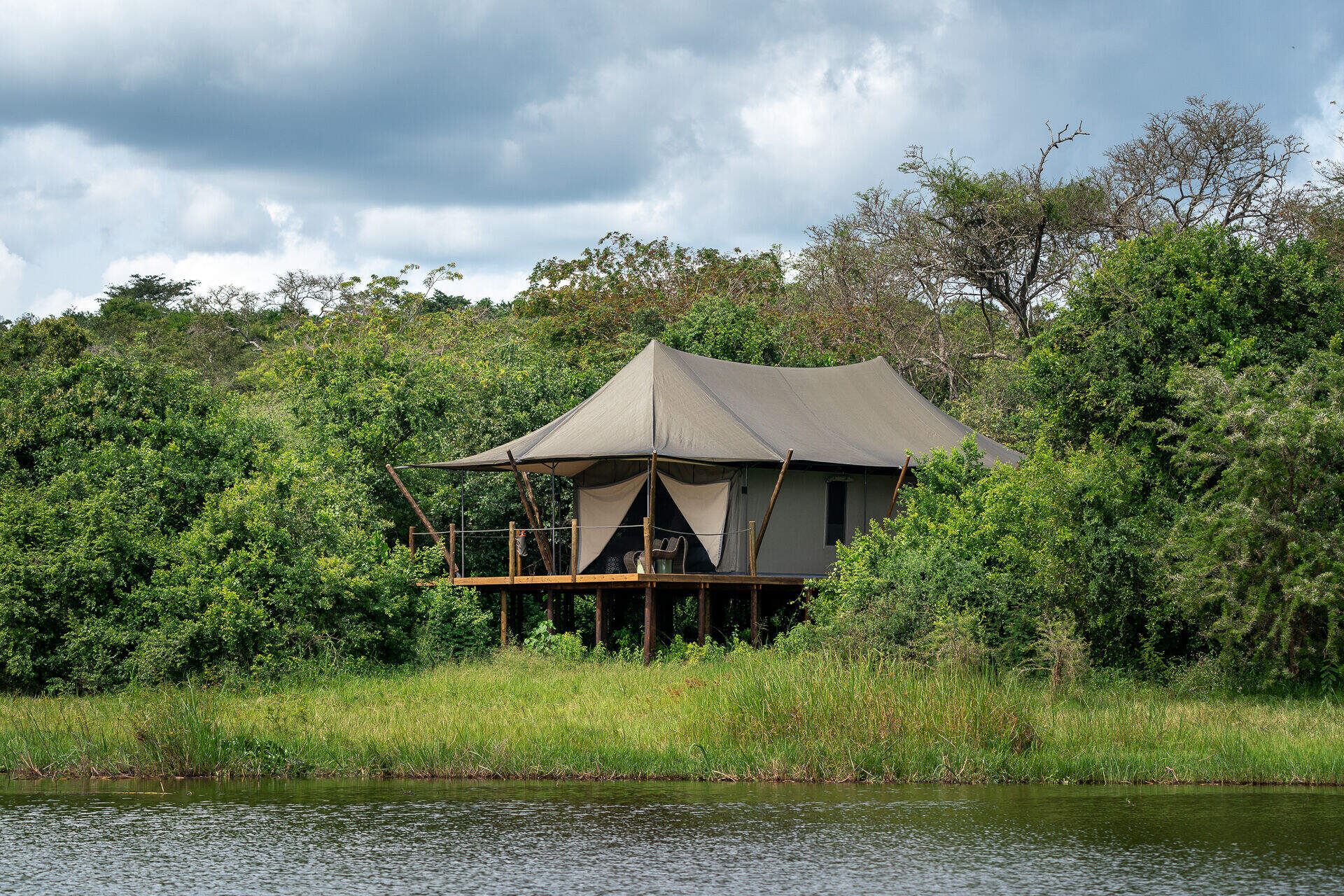
Magashi Camp
Magashi Camp is a very smart camp that opened in 2019 on its own private concession just north of Akagera National Park.
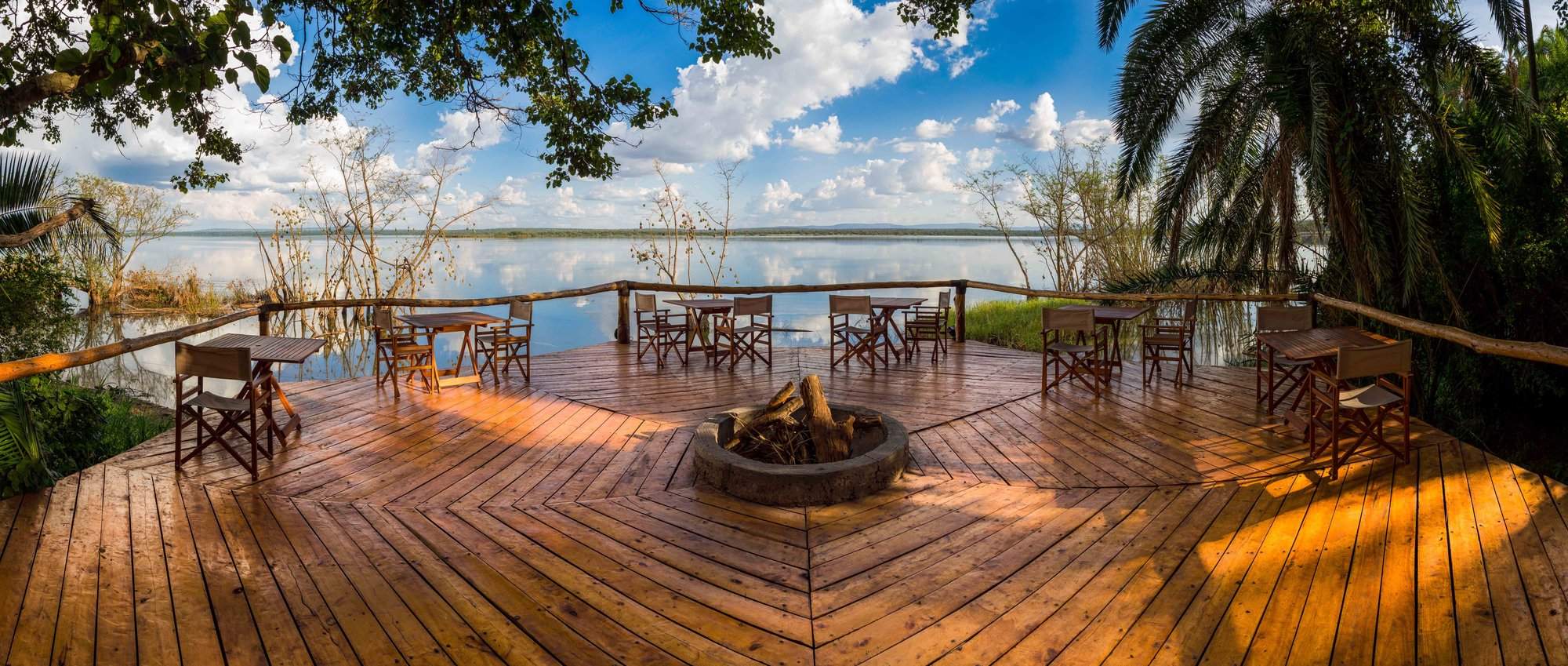
Ruzizi Tented Lodge
Ruzizi Tented Lodge opened in 2012 on the shore of Lake Ihema. It's a pretty place, with 9 ensuite tents and a dining deck.
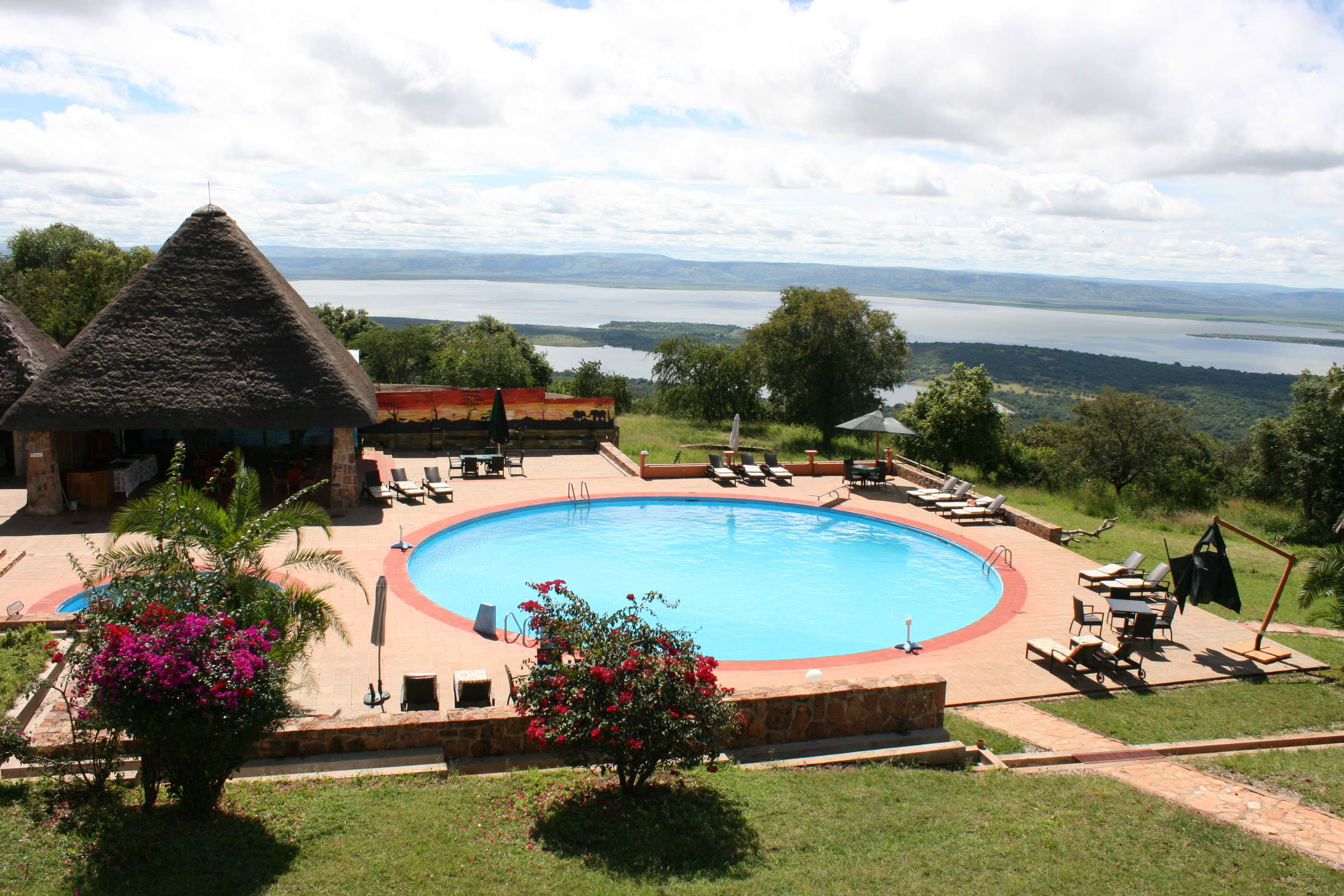
Akagera Game Lodge
The biggest place to stay in Akagera National Park, Akagera Game Lodge is a large hotel with excellent views.
Our travellers’ wildlife sightings in Akagera
This is their success for sightings in Akagera National Park. Click on a species for more detail. How we work this out.

100% success

100% success

100% success

100% success

100% success

100% success

88% success

75% success

75% success

63% success

33% success

25% success

0% success

0% success

0% success

0% success
When to go to Akagera National Park
Our month by month guide: What it's like to visit Akagera in Rwanda
Jan
Feb
Mar
Apr
May
Jun
Jul
Aug
Sep
Oct
Nov
Dec
Rwanda in January
January falls into the shorter dry season in Rwanda and conditions can be good, however expect some showers during your stay. Christmas and New Year can be a very popular time of year to travel and lodges book up early. The high demand and favourable conditions lead to high prices for the more luxurious lodges.
Travellers spending at least two nights in another of Rwanda’s national parks, in addition to the Volcanoes National Park, can take advantage of lower prices for one gorilla permit. This makes it great-value to do a longer trip to Rwanda, taking time to explore Nyungwe Forest and Akagera National Park. January can be fantastic for birding too, with plenty of migrant species found in the forests.
- Generally good weather although with some rainy spells.
- Popular time of year to travel, particularly around New Year.
- Advance booking advised, particularly for high-end trips.
- Good for birding with migrant species present.
- Special offers are great for exploring the other national parks.
Our view
A very good time to visit
Weather in January
Rwanda in February
As February progresses the likelihood of more rain increases as Rwanda heads towards the heavy rains in March and April. This can still be a good time of year to visit, particularly at the start of the month, and you are a likely to experience a mix of dry days and rainy spells. Your days are likely to be warm, however as with the rest of the year nights can be cold. This is particularly true of the Volcanoes National Park which is at higher altitude.
February can be a good time of year to combine gorilla trekking in Rwanda with seeing the wildebeest migration in Tanzania as the vast herds gather in February on the southern Serengeti plains for the calving season.
- Transitional month, with the chance of rain increasing towards March.
- Warm days and cold nights, particularly in Volcanoes NP.
- High-end lodges are expensive, although demand is lower.
- Migrant birds present with great birding to be had.
- Good time of year to combine with the wildebeest migration.
Our view
A good time to visit, with pros & cons
Weather in February
Rwanda in March
The heavy rains typically start in March, often continuing through to early May. This is generally not a great time to visit Rwanda and conditions are likely to be fairly wet and muddy underfoot. Many people still visit at this time, taking advantage of lower prices at the more luxurious lodges and good availability of gorilla permits. The rain clears the air and it is likely to be far less hazy at this time, making it very good for photography.
The green season can be particularly good for bird watching with many migrant species visiting Rwanda at this time. This can also be a good time of year for chimpanzee trekking, as their food is plentiful in March and troops are not likely to travel as far.
- Heavy rains make gorilla trekking conditions not ideal.
- Lower prices and good availability for gorilla permits.
- Good for bird watching with plenty of migrant species present.
- Typically shorter distances to walk for chimpanzee trekking.
Our view
This is not a great time to visit
Weather in March
Rwanda in April
April is typically one of the wettest months in Rwanda, with an average rainfall of around 150mm. It is still possible to visit during April, however be prepared for heavy rain and muddy conditions in the mountains. April is the low season for high-end lodges and prices can be significantly cheaper at this time.
Comparatively few people choose to visit during April, meaning that it is likely to be fairly quiet and relatively easy to secure gorilla permits. The 7th of April marks ‘Kwibuka’, an annual ceremony which begins three months of remembrance for the victims of the genocide. During this time the whole nation enters a period of reflection, with a number of events being held in commemoration.
- Expect heavy rains throughout the month.
- Few visitors means it is fairly easy to secure gorilla permits.
- It is the green season for luxury lodges, with much lower prices.
- Good time of year for birding.
- Kwibuka remembrance ceremony on 7th April.
Our view
This is not a great time to visit
Weather in April
Rwanda in May
May is often a transitional season in Rwanda, following on from the rains in April. Heavy bursts of rain can be expected at times, however it will often start to dry up as the month progresses. Any rainy spells are likely to last a few hours rather than all day. With the heavy rain earlier in the year it can often remain muddy underfoot when trekking the gorillas and chimpanzees and it’s advisable to wear gaiters.
Following the rains the air can be clear, without any haziness, and this leads to great photographic opportunities at this time of year. For many of the high-end lodges May is classed as the low season, which can make this month great value for money, with fairly good weather and comparatively low prices.
- Weather can be variable, mostly dry with some rainy spells.
- Be prepared for muddy conditions when trekking the gorillas.
- Good air clarity leads to great photographic opportunities.
- Can be good value for money if you’re looking at a high-end trip.
Our view
A good time to visit, with pros & cons
Weather in May
Rwanda in June
The weather in June can be fantastic and this is one of the best times of year to visit Rwanda. This is the start of the main dry season in Rwanda and the rainfall in June typically averages only around 20mm. It is likely to be warm and dry during the day, however the odd rainy shower remains possible. Conditions for gorilla trekking can be very good, although you are still likely to experience mud underfoot in parts.
This is the peak season for the high-end lodges and prices rise significantly. Rwanda is exceptionally popular between June and September and the luxurious lodges regularly fill up well over a year in advance, so we advise planning early.
- Dry weather can lead to excellent conditions for gorilla trekking.
- High-end lodges increase their prices and trips can be costly.
- Very popular time of year, advance booking is strongly recommended.
Our view
Fantastic: the very best time to visit
Weather in June
Rwanda in July
July is a great time of year to visit Rwanda, this is in the middle of the longer dry period and conditions for gorilla trekking can be excellent. Expect long dry days, although always with the off-chance of rain at some point during your stay. As with the rest of the year, temperatures are likely to average around 20-25ºC during the day, though nights can be chilly.
July is a very popular time of year to travel to Rwanda and we advise booking at least 12 months ahead, particularly if you’re looking for a high-end trip. Prices at the top end of the market can be very high in July, however many of the mid-range lodges have the same prices throughout the year, making these options great value at this time.
- Excellent conditions with dry weather for much of the month.
- Very popular time to travel with a limited number of gorilla permits.
- Advance booking is required to for the best choice of accommodation.
- High-end trips can be expensive at this time of year.
- Many mid-range lodges have the same price throughout the year.
Our view
Fantastic: the very best time to visit
Weather in July
Rwanda in August
August is one of the most popular times of year to visit Rwanda. This is the middle of the longer dry season and conditions can be very good. While it can still be muddy underfoot this is unlikely to impact your trek. Our top advice for travel in August is to plan early as many of the more popular lodges will regularly book up well over a year in advance at this time.
Many people visiting Rwanda will choose to combine this with a safari in the Serengeti and August is one of the best months for this. The wildebeest migration is in full swing, with the vast herds being up near the Mara River and river crossings likely.
- Fantastic time to visit with dry weather and great conditions.
- Very popular time to travel, we advise booking early.
- Lodges book up and gorilla permits can be hard to secure.
- Higher prices for the top-end lodges.
- Great time of year to combine with a safari in the Serengeti.
Our view
Fantastic: the very best time to visit
Weather in August
Rwanda in September
The dry season comes to an end in September, with the rains increasing towards the end of the month. For the most part you are likely to experience dry conditions, but be prepared for rainy showers and cold nights. September remains a popular time to travel, especially for those combining the gorillas with the wildebeest migration.
The Kwita Izina festival (the official naming ceremony for all baby gorillas born in the past year) takes place ever year, usually in September. It’s a time of celebration for everyone involved in their conservation. The exact date varies. Chat to us if you’d like to plan your trip around this event.
- Conditions typically good but expect some rain.
- Popular time to travel and early booking is advised.
- Great time of year to combine gorillas and the wildebeest migration.
- The Kwita Izina festival, usually in September, names baby gorillas.
Our view
A very good time to visit
Weather in September
Rwanda in October
The short rains have typically started by October with the month’s rainfall averaging around 110mm. This rain normally falls in short, heavy bursts and you’re likely to have plenty of dry spells too. As with the rest of the year, days can be warm, although nights can be cold, and this is especially true around the Volcanoes National Park where lodges set log fires to keep you warm in the evening.
Lots of people choose to visit Rwanda at this time and prices remain high for the top-end lodges. Booking early is recommended, particularly if you plan to stay at one of the smaller, more exclusive lodges around the Volcanoes park.
- Good time of year to travel although with an increased amount of rain.
- Days are warm however nights can get cold.
- October is popular, particularly for the high-end lodges.
- Prices remain high at the top end of the spectrum.
Our view
A good time to visit, with pros & cons
Weather in October
Rwanda in November
The rains typically continue into November and this can be one of the wetter months of the year. This can still be a good time to travel, as there are still likely to be plenty of dry periods and the gorillas can still be trekked. However, expect quite a bit of mud. The high-end lodges drop their prices in November, making it much more affordable for luxury accommodation.
Between November and April there is also a special offer from the parks authorities, providing a discount on your first gorilla permit if you spend at least two nights in one other national park. This special offer combined with lower prices for luxury lodges makes Rwanda great value for money in November.
- One of the wetter months however gorilla trekking is still possible.
- Far less busy, making it easier to secure gorilla permits.
- Reduced prices for high-end accommodation.
- Special offers to encourage travel to multiple national parks.
Our view
A good time to visit, with pros & cons
Weather in November
Rwanda in December
Rwanda has a second short dry season which typically runs from December to January. Conditions at this time can typically be fairly good, although not as ideal as June – August, and you can still expect rain at this time. Many of the forest tracks can be muddy and nights can be cold.
Many people choose to travel to Rwanda over Christmas and New Year and we advise booking early, particularly if you have preferred lodges in mind. The special offer for a your first gorilla permit at a reduced price remains in place for all travellers spending at least two nights in another park, making Rwanda excellent value for money in December.
- Short dry season, however rain is still possible.
- Conditions for gorilla trekking can be good, but expect mud.
- Cold at night, warm clothes are recommended.
- Very popular over Christmas and New Year, early booking advised.
- Special offers make December good value for money.
Our view
A good time to visit, with pros & cons
Weather in December
Akagera National Park: In detail
A guide to Akagera National Park
Hugging Rwanda’s eastern border with Tanzania, Akagera National Park covers about 1,120km² and is one of Africa’s oldest national parks, first gazetted in 1934.
In 2024 Akagera took the initiative of banning all single-use plastic items – plastic bottles, cups, cutlery etc – from the park.
Activities on an Akagera safari
Boat trips along the shores of Lake Ihema, Rwanda’s second largest lake, yield some great aquatic bird sightings and you can even fish on Lake Shakani.
Unusually, African Parks offers the opportunity to get a feel for the management of a national park on behind-the-scenes tours to their HQ and to meet the staff. Interestingly, because Rwanda is particularly strong on gender equality, Akagera National Park has many female guides, a rarity on most African safaris.
Wildlife of Akagera National Park
In 2015, seven lions were reintroduced to Akagera, becoming the first lions to roam these plains for 15 years. Since their reintroduction they have done extremely well and their numbers have improved year on year. Then 18 eastern black rhinos were reintroduced to the park in 2017, making Akagera National Park a “big five" destination once again – and the first wild black rhino to be born in the country in over a decade was welcomed later that year. And in 2021, 30 southern white rhinos were relocated to the park from the Phinda Game Reserve in South Africa.
The game on an Akagera safari includes most of the usual plains species. Impala and topi (known as tsessebe in Southern Africa) seem to be dominant, with eland, oribi, Masai giraffe, Defassa waterbuck, reedbuck, bushbuck, sable and roan antelope also present. Burchell's zebra, hippo and crocodile are commonly seen whilst game viewing; buffalo are more prevalent in the north as are elephants. One elephant in particular was well-known across Rwanda, having been semi-habituated when younger. Mutware was the grumpy old man of Akagera, he died of natural causes at the ripe old age of 48, but in his time was an infamous character to the park!
Birds of Akagera National Park
Short boat trips are available on Akagera’s lakes which will give you the opportunity to get close to the plentiful waterbirds including numerous African fish eagles, marabou stork, crowned cranes, open-billed stork, cormorants, herons and egrets. If you are lucky you may even get to see the elusive shoebill stork.
Map of Akagera National Park
Choices for where to stay in Akagera National Park
Akagera National Park: Safaris

Golden Monkey Safari
12 days • 5 locations
KIGALI AIRPORT TO KIGALI AIRPORT
Combine four key areas of Rwanda on this excellent-value trip, for a true wildlife and cultural experience. The perfect itinerary for those who want to see all the highlights of Rwanda.
US$11,010 - US$12,170 per person
3 lodges in Akagera National Park
Listed below are our favourite lodges in Akagera National Park. Ask us for more details of what's likely to suit you best!

Magashi Camp
Magashi Camp is a very smart camp that opened in 2019 on its own private concession just north of Akagera National Park.

Ruzizi Tented Lodge
Ruzizi Tented Lodge opened in 2012 on the shore of Lake Ihema. It's a pretty place, with 9 ensuite tents and a dining deck.

Akagera Game Lodge
The biggest place to stay in Akagera National Park, Akagera Game Lodge is a large hotel with excellent views.
Excursions in Akagera National Park
Optional, extra day-trips and excursions that are possible while you’re staying in Akagera National Park. Talk to us: these excursions are usually best arranged before you go.
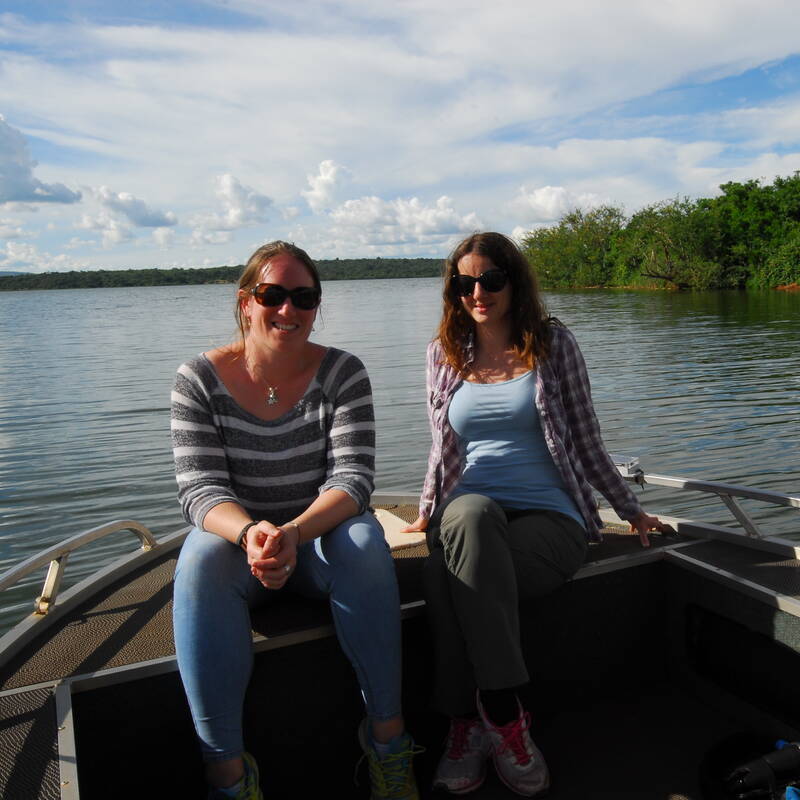
Akagera Sunset Boat Safari
Half day - one hour on the water
Akagera’s Lake Ihema is a beautiful contrast to the rolling hills of the east of Rwanda, and the flatter plains to the north. Relax and enjoy the peace and quiet on your cruise, while watching the sunset over the lake and the national park beyond.
More about Sunset Boat Safari
Looking for inspiration on where to travel next?
Visit our trip chooser to explore your options and find inspiration for your perfect African adventure
Inspire me